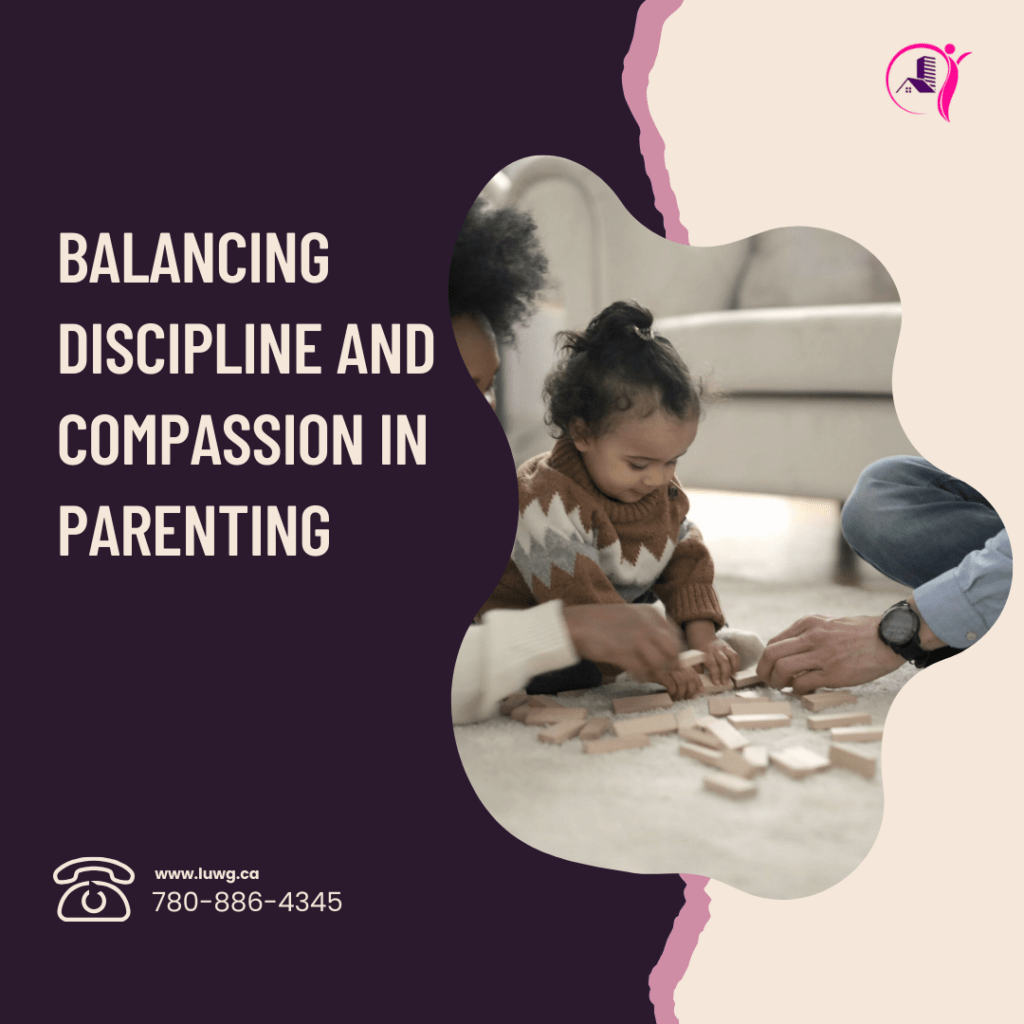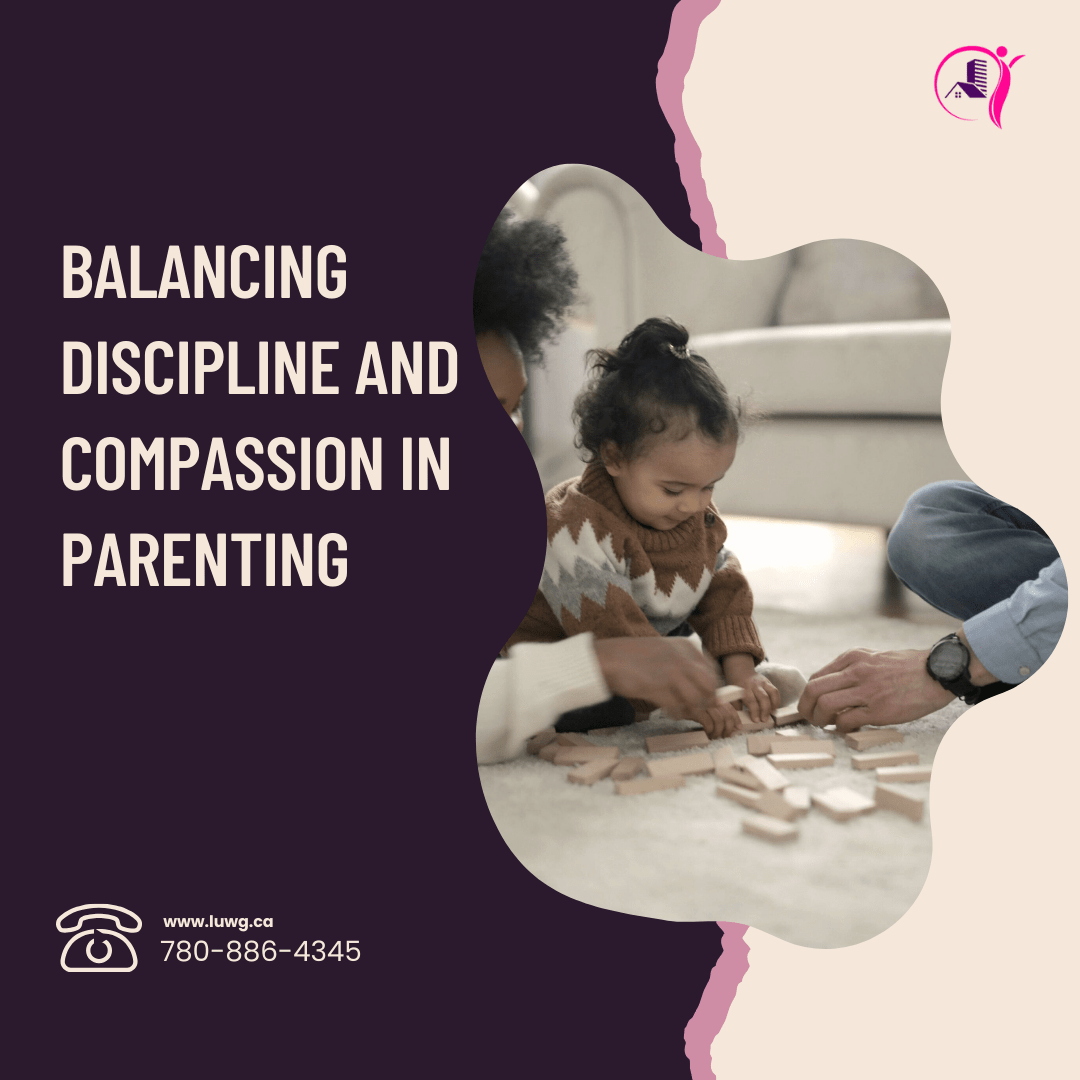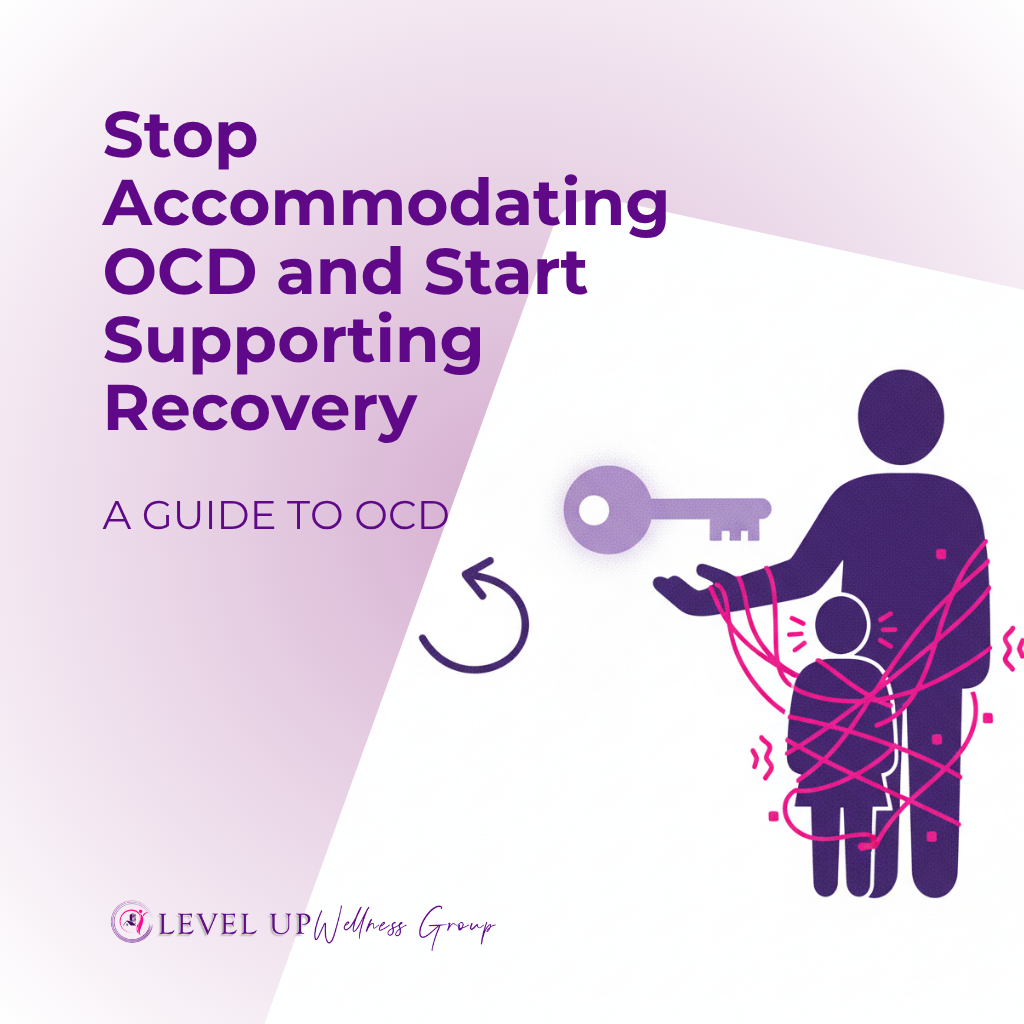
Introduction: The Need for Balance in Parenting
Parenting is a dynamic journey requiring a thoughtful blend of guidance and empathy. At the core of effective parenting lies the principle of balancing discipline and compassion in parenting, which ensures that children are nurtured with love while also learning the structure necessary for personal and social growth.
Achieving this balance can be challenging, especially in the face of daily parenting struggles. Resources like Family Counselling provide professional support to help parents navigate this delicate dynamic. By exploring ways to set boundaries without compromising emotional connection, parents can cultivate a home environment conducive to trust and mutual respect.
If you’re wondering, “How can I provide structure without being too harsh?” or “How can I ensure my child feels heard while enforcing rules?”, this article offers practical insights and strategies. For tailored support, LUWG is a trusted partner in your parenting journey.
Why Balance is Essential in Parenting
The journey of parenting often falls prey to extremes: being overly strict or excessively lenient. Each approach comes with challenges, but striking a balance is essential for fostering emotional resilience, trust, and discipline.
Drawbacks of Extreme Parenting Styles
Strict Parenting:
- While it enforces rules, it can alienate children, leading to fear-based compliance and stifled emotional expression.
- This approach often results in rebellion or strained relationship
Permissive Parenting:
- This style, though empathetic, can lead to inconsistency, confusion, and a lack of responsibility.
- Children may struggle to cope with setbacks, as they’ve rarely encountered firm boundaries.
- Striking a balance helps avoid these pitfalls. For parents seeking guidance, LUWG Family Counselling provides tailored solutions for addressing both emotional and behavioral challenges.

Benefits of Balanced Parenting
A harmonious blend of discipline and compassion nurtures:
- Emotional Growth: Children learn to express themselves while respecting boundaries.
- Resilience: Encouraging independence while offering support fosters
- Trust and Communication: A balanced approach builds strong parent-child relationship
By partnering with experts like LUWG Family Counselling, parents can receive tools to reinforce these principles effectively.
Core Principles of Balancing Discipline and Compassion
The essence of balanced parenting lies in combining structure with understanding. Here are the foundational principles:
1. Clear Boundaries
Children need clarity to feel secure. By setting consistent rules, parents
provide a framework for acceptable behavior.
Tip: Use visual aids like charts for younger children. For guidance in establishing routines, contact us.
2. Empathy and Understanding
Acknowledging your child’s feelings while guiding their actions is crucial. For instance:
Instead of dismissing a tantrum, say, “I see you’re frustrated. Let’s talk about what’s wrong.”
Support like that offered by LUWG Family Counselling can teach parents effective emotional validation techniques.
3. Positive Reinforcement
Rewarding positive behavior encourages repetition.
Example: Praise effort over results, and use tools like reward charts.
4. Mutual Respect
Respecting your child’s opinions and needs fosters cooperation.
Avoid yelling; instead, resolve conflicts with calm, open discussions.
For help fostering mutual respect, Family Counselling is an excellent resource.
Strategies to Balance Discipline and Compassion
Integrating practical strategies can help parents create a harmonious parenting dynamic. Here are some actionable methods:
1. Model Behavior
Children learn by observing. Displaying patience, honesty, and kindness teaches them to emulate these traits.
For personalized guidance, explore services at Family Counselling.


2. Collaborative Problem-Solving
Rather than imposing solutions, involve your child in resolving issues. For example:
- Brainstorm solutions for incomplete homework together.
3. Natural and Logical Consequences
Allow children to experience the natural outcomes of their choices while offering constructive feedback.


4. Practice Active Listening
Acknowledging your child’s voice helps build their confidence. Reflect back their feelings, e.g., “It seems like you’re upset because your plans changed.”
If challenges persist, consulting with LUWG Family Counselling can offer tailored strategies for effective communication and discipline.
Benefits of a Balanced Approach
The long-term advantages of balancing discipline and compassion in parenting are transformative:
- Stronger Parent-Child Relationships: Built on trust and open communication.
- Enhanced Emotional Intelligence: Children learn to understand and regulate their emotions.
- Reduced Conflict: Balanced parenting minimizes power struggles and fosters harmony.
- Increased Independence: Children develop self-confidence and resilience.
By incorporating these strategies and seeking expert advice from resources like LUWG Family Counselling, families can create nurturing, balanced environments.
Addressing Common Challenges
Parenting often involves navigating tough situations such as tantrums, defiance, and sibling rivalry. Each challenge provides an opportunity to embrace discipline with compassion while fostering positive behaviors in children. Professional guidance, like the support offered by LUWG Family Counselling, can help parents maintain balance.

1. Managing Tantrums with Compassion and Boundaries
Tantrums are a natural part of child development, often signalling unmet emotional or physical needs.
- Validate their emotions: Saying, “I see you’re frustrated because you can’t have that toy,” reassures children they are heard.
- Set firm boundaries: Explain calmly, “We can’t buy it today, but we can add it to your birthday list.”
- Model positive behavior: Demonstrate calmness during these moments to teach emotional regulation.
Support from LUWG Family Counselling can help parents establish a predictable response strategy to tantrums, reducing a child’s sense of abandonment during emotional outbursts.
2. Addressing Defiance with Fair Consequences
Defiance often arises when children feel their autonomy is undermined.
- Offer choices: Give your child options, such as “Would you like to finish your homework before or after dinner?”
- Be consistent with discipline: Clearly explain the logical outcomes of their choices, ensuring they face fair consequences for their actions.
For example, missing homework might lead to reduced playtime. Consistent approaches promote a sense of predictability and trust.
3. Reducing Sibling Rivalry with Effective Strategies
Sibling disputes are common but manageable with balanced parenting.
- Encourage mutual respect: Establish household rules that emphasize kindness and collaboration.
- Promote desirable behavior: Reward children when they work together, reinforcing cooperation.For example, “You both cleaned up your toys so well—great teamwork!” highlights positive reinforcement.
For more insights, LUWG Family Counselling offers strategies tailored to family dynamics.
Real-Life Examples of Balanced Parenting

Applying discipline with compassion in real-life scenarios helps ensure children grow into responsible and empathetic individuals.
1. Screen-Time Negotiations
Scenario: Your child protests when their screen time ends.
- Compassionate Approach: Acknowledge their frustration by saying, “I know you love playing that game; it’s so fun.”
- Discipline Approach: Reinforce the boundary: “We agreed on 30 minutes of screen time. Let’s take a break now and play outside.”
2. Bedtime Resistance
- Balanced Parenting in Action: Validate their feelings: “It’s hard to stop playing, isn’t it?” Then, ensure they follow the routine: “But bedtime is important. Let’s read your favorite story together to relax.”
3. Teaching Responsibility
Scenario: Your teen forgets to clean their room.
- Use Fair Consequences: They may lose access to video games until the task is completed.
- Promote Desirable Behavior: Praise them when they do it unprompted: “You cleaned your room today—great job being responsible!”
Professional guidance from LUWG Family Counselling can offer tailored solutions for encouraging accountability and respect.
The Role of Self-Reflection in Parenting
Effective parenting starts with self-awareness. Parents need to reflect on their own actions and triggers to implement a discipline with compassion approach effectively.
- Recognize Personal Triggers
Parents often react based on their own upbringing or stress levels.
Example: If strict rules in your childhood caused resentment, reflect on how you can establish boundaries without being overly authoritarian.
- Model Emotional Regulation
Children learn emotional regulation by observing their parents.
Example: If you’re feeling overwhelmed, say, “I need a moment to calm down,” to show them how to manage stress constructively.
- Practice Mindfulness
Mindfulness techniques like meditation or journaling can help parents maintain composure.
For support in cultivating self-reflection, reach out to LUWG Family Counselling, which offers resources for authoritarian parents seeking to adopt a more balanced style.
Embracing Balance in Parenting

Balancing discipline and compassion is the cornerstone of effective parenting. It allows children to grow into compassionate children who understand the value of structure and kindness. By setting strict rules while
addressing emotional needs, parents foster desirable behavior and emotional intelligence.
Start small by applying one strategy—whether it’s practicing active listening, modeling emotional regulation, or offering fair consequences—and observe the positive impact on your family. For tailored guidance, explore the expertise available at LUWG Family Counselling, where families can find actionable advice for effective discipline strategies.





